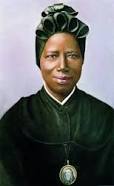(To clarify, Catholic Insight is not a ‘political’ magazine, even if I have some hesitation in making too hermetically-sealed categories. There is a right, and a duty, to critique our political leaders, especially when their policies go contrary to right reason, the moral law and the Church’s revealed truth. Furthermore, we have our own category here, Vox Populi, which allows writers have their say in a more personal way. And readers are always free to respond). Ed.
Mark Carney did not stand up to Donald Trump; instead, he submitted. Despite campaigning as a principled opponent of Trump-style nationalism, Carney’s Oval Office appearance revealed the truth, namely, that liberal elites are not resistant to populism, but are rebranded by it. To ask what the Carney-Trump Oval Office meeting means is to miss the deeper question: What does our acceptance of it say about us as Canadians?
When Mark Carney stood beside Donald Trump in the Oval Office, lavishing praise on a man he once implicitly opposed, the moment should have rung alarm bells across the Canadian population. Instead, many Canadians shrugged, or worse, they applauded. In truth, the real crisis is not Carney’s duplicity or Trump’s strategic flattery. It is the moral, intellectual, and civic decline of the Canadian public.
Let us be clear: Trump’s comments were not an endorsement; they were subjugation. “We spoke before the election quite a few times,” Trump said. He added: “I think I was probably the greatest thing that happened to him. His party was losing by a lot, and he ended up winning. So I really want to congratulate him, probably one of the greatest comebacks in the history of politics, maybe even greater than mine.” Carney, in return, called Trump a “transformational president” and praised his economic nationalism, border control, and fentanyl crackdowns. The same Trump who mocked Canadian leaders and imposed tariffs now smiles across from Carney, content that Canada elected someone “very talented” because he knows Carney is someone he can “deal” with.
And why not? Carney, the former Goldman Sachs banker and Brookfield Asset Management executive, is a man of many faces. While at Brookfield, the firm partnered with Jared Kushner’s real estate empire. He was also publicly aligned with Elon Musk during Brookfield’s role in the Twitter buyout, even though threats loom within Canada of confronting “hate speech” through platforms like X with the ominous Online Harms Act Bill C-63. He also dabbles in Catholic language when it suits him and embraces radical ESG goals when convenient. To Trump, Carney is not a threat. He is a commodity, a malleable technocrat who can be flattered into alignment.
Canadians were told by our media that Carney would be the anti-Trump: a defender of climate orthodoxy, global cooperation, and “democratic values.” Instead, in less than a week after his election, he is photographed raising a fist with Trump, sat through barely without a response to talk of “Canada as the 51st state,” and cozying up to a transactional nationalism that the hapless Trudeau once called “dangerous.”
While Carney embraces foreign power and globalist theatrics, domestic unity quietly unravels. Meanwhile, the internal disintegration of Canada accelerates. In Alberta, Premier Danielle Smith is managing a legal and procedural agenda that could enable a citizen-initiated referendum on sovereignty as early as 2026. While Smith denies supporting separatism, attention drawn to the anger and alienation in Alberta and Saskatchewan has reached a tipping point. As she put it, “there’s a lot of anger out there… a lot of groups are organizing to try to do something about it.” The implication is unmistakable: if Ottawa continues to govern on behalf of climate alarmists and technocratic elites, not citizens, Alberta and Saskatchewan may either seek independence, or join the United States, perhaps becoming the true 51st and 52nd states while the rest of Canada crumbles under its own delusions.
This is not a contradiction. It is a revelation. As Trump joked: “Never say never.” His real estate developer’s mindset is not deceived by what he perceives as the illusion of borders. “Somebody drew that line many years ago… just a straight line right across the top of the country.” To him, Canada is an undervalued asset: militarily subsidized, economically dependent, and psychically weak. The fantasy of annexation is not new to Trump; it’s an opportunity and a strategy to secure Canadian borders from the potential threat of Communist China. In the end, what truly matters, beyond the posturing, is how unserious Canadian leadership has become in rejecting it with conviction.
Carney’s response? He invoked the monarchy. “Some places are never for sale… we’re sitting in one right now.” But even that rhetoric fell flat. He could not say “never” without Trump retorting, “Time will tell.”
Trump made it brutally clear where Canada stands in his economic calculus. “We want to make our own cars,” he said. “We don’t really want cars from Canada, and we put tariffs on cars from Canada, and at a certain point it won’t make economic sense for Canada to build those cars.” He continued: “We don’t want steel from Canada because we’re making our own steel… We really don’t want Canadian steel, and we don’t want Canadian aluminum.” The message was unambiguous: Canada is dispensable. Carney offered no real rebuttal. Carney’s appearance was merely rehearsed flattery. His presence was not to negotiate, but to affirm his utility as a compliant counterpart.
The real problem, then, is not Carney’s opportunism or Trump’s bombast. It is the Canadian electorate’s willingness to continuously buy the illusion. We were sold a statesman and elected a supplicant. A man who owes not his political “resurrection,” which was not even possible for Trudeau, but his political creation ex nihilo, to Trump’s influence and the very populism he once scorned.
Consider Carney’s echoing of Trump’s fentanyl narrative, and his silence while Trump mocked former Deputy Prime Minister Chrystia Freeland and made disparaging remarks about Canada’s dependency. Trump remains unchanged. However, Carney has, even though perhaps not in the eyes of the unsuspecting Canadian, namely, the electorate, pacified into admiration by a polished accent and a promise of “global leadership;” that voted him in.
What does it say about us that we reward this?
If there were any remaining doubts about how deep the deception runs, look no further than how the CBC covered this meeting. Rather than ask hard questions about Trump’s tariff threats or Carney’s sycophancy, they framed the event as a friendly working lunch, an exercise in diplomatic theatre. Headlines focused on optics: handshakes, compliments, and rhetorical pleasantries. The CBC once again played its role as the mouthpiece of elite consensus, crafting a storyline to reassure the electorate that all was well, while the very foundations of our sovereignty were being eroded in real time.
The media may obsess over the optics of the Oval Office handshake or Carney’s “gracious” tone, but the real story is the collapse of civic discernment. Canada has not just elected a politician, it has subjugated itself to a system where elite consensus is brokered behind closed doors, where foreign flattery trumps domestic accountability, and where resistance is dismissed as “extreme.”
Canadian voters elected a man who campaigned on the illusion that he could “stand up to Trump.” In reality, he had no power to change Trump’s tariff policy and knew it in advance. Carney duped liberal voters with a bogus promise to be a bulwark against the former president, yet the moment he entered the White House, he grinned, fist-bumped, and echoed Trump’s own talking points.
Carney’s surrender to Trump did not begin in the Oval Office. It began weeks before the election. While posturing on the campaign trail about “fighting back” against US tariffs and protecting Canadian industries, he quietly signed an April 16 Order in Council that rendered those very tariffs meaningless. Technically, they remain on the books, but the exemption framework is so wide that virtually any company can apply for relief. The result is functionally the same as eliminating them entirely. This sleight of hand allowed Carney to publicly claim he was standing firm against Trump while privately ensuring no economic blowback to American firms. This also explains why Trump now praises him so warmly, not due to shared ideology, but because Carney was already capitulating behind the scenes. From his role in Brookfield’s $250 million Twitter buyout to aiding Kushner’s real estate empire, Carney had proven himself an asset. Liberal supporters continue to perform mental gymnastics to justify the betrayal, gaslighting the rest of the country into thinking the action was strategic governance. It was not. It was duplicity. His entire campaign was built on it. Trump’s tariffs remain. Canada’s are nullified. This was not a prudent economic decision debated in good faith. It was a deliberate and concealed reversal. The Liberal Party has proven yet again that it is not trustworthy.
This is not savvy leadership, let’s call it what it is: fraud.
After all the talk of a fresh start, Carney unveiled a cabinet reshuffle that felt like déjà vu. Nearly all key positions went to Trudeau-era ministers, i.e., those involved in past scandals and responsible for economic blunders, censorship laws, and pandemic overreach. This isn’t reform; it’s a repetition.
At what point will Canadians admit the “conspiracy theorists” were right about technocracy, speech suppression, and sovereignty erosion? The ones who warned about the coming technocracy, the suppression of free speech, the targeting of private wealth, and the erosion of national sovereignty? The average liberal voter, keeps getting it catastrophically wrong because they still fervently believe in the CBC, the Toronto Star, and the rest of the corporate press that have long since abandoned the public interest.
Many now believe, and rightly so, that this election was manipulated. But even if the numbers were legitimate, it does not absolve the electorate of its culpability. Carney’s victory was not simply a political win; it was a referendum on how easily the Canadian people can be deceived with elite branding and globalist platitudes.
In the end, Trump was right: liberal leaders are easier to deal with. They are eager to please, allergic to sovereignty, and fluent in euphemism. Carney fits the mould perfectly. He is neither left nor right; he transcends politics, or so we are told. But this is precisely the problem. The technocrat is more dangerous than the ideologue because he cloaks subservience in the language of pragmatism.
And for the record, Trump explicitly stated he will not remove tariffs: “No. Just the way it is.” This matters because his fiscal vision includes reducing or even eliminating income taxes, replacing them with tariffs. That is how the US Constitution was originally designed to function. So to those who voted Carney in on the illusion he could tame Trump, wake up. He knew he had no leverage. But he sold you that fantasy anyway. As of mid-May, Carney has not even presented a federal budget, yet he is already steamrolling ahead with massive spending pledges. Billions are being funneled into green energy schemes and immigration-based housing plans without fiscal guardrails or democratic oversight. Moreover, we get photo-ops with Zelensky, signaling more taxpayer-funded entanglement in a foreign war, while pressing fiscal matters at home are delayed or ignored.
Accountability is not even an afterthought. It is an obstacle.
Now that he is in office, prepare for what he really represents: a home equity tax, the Online Harms Act to suppress dissent, and a justice system that punishes critics harder than criminals. The home equity tax, while not yet law, has been championed by policy advisors close to Carney. It proposes taxing the unrealized gains on your primary residence, a direct threat to middle-class homeowners that turns long-term financial planning into a liability.
A case in point: over the past few years, truckers who protested illegal COVID mandates have had their bank accounts frozen, been arrested, and in some cases convicted. Pastors who defy unconstitutional restrictions on protesting Drag Queen Story Hour are also jailed. These are not isolated incidents—they are a preview of what is to come.
We are watching the slow fracture of Confederation in real time, not because of some extremist uprising, but because ordinary Canadians in the West feel abandoned. Trudeau’s government ignored them, and now Carney’s globalist regime is prepared to economically suffocate them. The very provinces that fuel the country’s prosperity are being regulated, taxed, and censored into submission. Premier Smith’s comments reveal that the “Canada” we claim to defend may already be gone, fractured by federal overreach, cultural alienation, and economic sabotage. And still, the CBC tells us to celebrate photo-ops in the White House.
And so much for “elbows up.” We are now knee-deep in it. Carney’s fellow propagandist Mike Myers, who holds three passports and has not lived in Canada since Gowan’s “You’re a Strange Animal” was topping the charts in 1985, had his name come up in the Diddy trial.
The Carney-Trump meeting was not a summit. It was a sales pitch. And as expected and true to form, the media believing Canadians, willingly bought it and continue to defend it.












